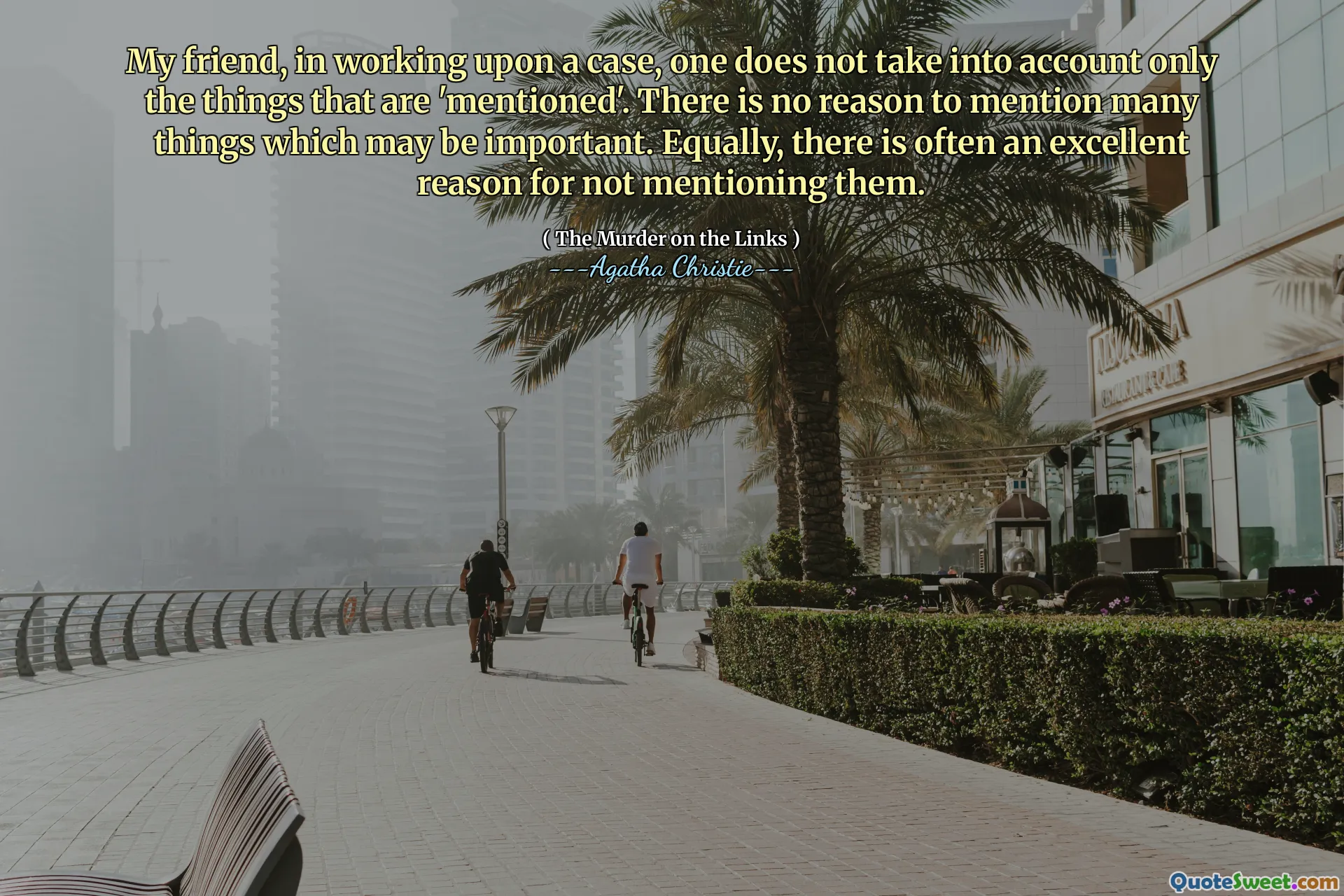
My friend, in working upon a case, one does not take into account only the things that are 'mentioned'. There is no reason to mention many things which may be important. Equally, there is often an excellent reason for not mentioning them.
This quote highlights the nuanced nature of investigation and communication, emphasizing that what is explicitly stated may only be a fraction of the full picture. In many situations—be it in detective work, diplomacy, or personal relationships—what remains unsaid often carries as much weight as what is directly communicated. The absence of mentioned details can serve deliberate purposes: to protect someone's privacy, to obscure the truth, or to guide perceptions in a particular direction. Recognizing this dynamic is crucial for anyone seeking to understand the full context of a given scenario.
In the realm of detective work, such as exemplified in the work of Agatha Christie, a keen observer looks beyond what others choose to say openly. The unspoken elements—body language, omissions, inconsistencies—are often the key to solving the case. This insight encourages us to be cautious about accepting surface information at face value. Moreover, in everyday life, choosing what to disclose or conceal can influence relationships, negotiations, and judgments. The wisdom lies in understanding not just what is said, but also what is left unsaid, and recognizing the reasons behind such choices.
Effective communication and critical thinking require us to be aware of this balance. Sometimes, withholding certain details ensures safety; at other times, it might conceal guilt or mislead. This quote reminds us to approach information with a critical eye and to appreciate the silent cues that complement spoken words. Ultimately, mastering this awareness can lead to deeper insights into human behavior, the motivations of others, and the truth behind complex situations.






